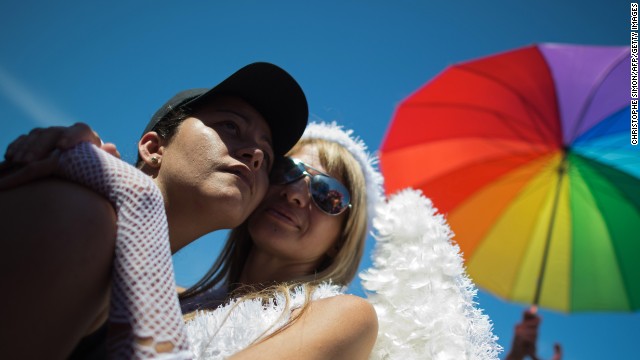Portugal's parliament on Friday handed same-sex couples the right to adopt the children or foster children of one partner, a partial victory for equality campaigners that fell short of their call for full adoption rights.
The co-adoption law scraped through with a majority of just five votes in the 230-seat Lisbon assembly, prompting long applause from the gallery. Nine deputies abstained and as many as 28 did not show up for the vote.
Activists hailed the biggest step forward for gay rights since Portugal became the eighth country to allow nationwide same-sex marriages in 2010, breaking with the Catholic nation's predominantly conservative image.
"It was a super-important, fundamental approval as it concerns the human rights of the children and not just the couples," said Paulo Corte-Real, head the country's gay, lesbian and transgender rights association, ILGA.
He said the law would benefit children raised by same-sex couples by giving the children additional protection if their original parent died or became seriously ill.
Catholic Church leaders have opposed moves by some European countries to allow same-sex unions and adoption by gay couples, saying heterosexual marriage has an indispensable role in society.
France, which is mainly Catholic, last month followed 13 countries including Canada, Denmark, Sweden and most recently Uruguay and New Zealand in allowing gay and lesbian couples to tie the knot. The French law also authorized adoption.
The Portuguese bill, presented on the International Day Against Homophobia, still needs to be signed into law by conservative President Anibal Cavaco Silva, who enacted the same-sex marriage bill in 2010 but expressed his disapproval.
Another bill introduced by two left-wing parties that would have extended full adoption rights to gay couples failed to pass on Friday.
The ILGA took the Portuguese state to court after the European Court for Human Rights ruled in February that Austria's adoption laws discriminated against gay people on the issue of co-adoption.
Reuters:
Reuters:









































